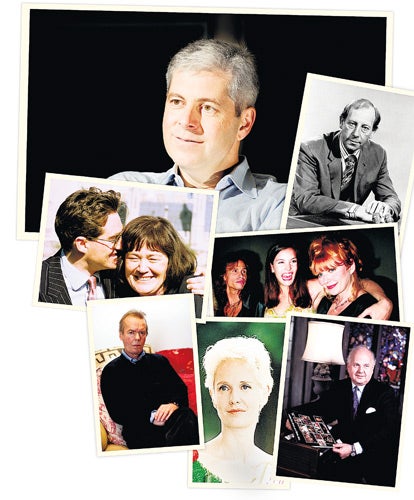Families: Secrets and lives
It can be tough discovering that the person you thought was your birth parent is no relation at all – but it need not destroy the relationship, says Alice-Azania Jarvis

In fiction, it is a recurring theme: From the mysterious parentage of Jack Worthing in The Importance of Being Earnest, to Kat Slater's revelation – in one dramatic, much-watched episode of EastEnders – that her "sister" Zoe was, in fact, her daughter, the notion of a secret parent has proven a pre-occupying cultural plot.
It is little surprise, then, that Justin Webb's recent revelations have passed such muster. His case, of course, is rather different: not only is it decidedly non-fiction, but, as the host of Radio 4's Today programme has revealed, he did, in fact, know his father's identity – Peter Woods, newsreader and host of the flagship Nine O'Clock News – and his father knew his. But both chose not to acknowledge it.
Aside from a brief encounter when Webb was just six months old, the pair have had no contact. Webb would see his recognisable parent on the television screen, but he "really did not make much of a connection". "I cannot even remember wanting to tell anyone," he wrote in Radio Times. "It was that deeply buried." Indeed, the only reason that the truth has come to light is because Webb feared its revelation was imminent anyway: "Rather than read about us in a gossip column one morning, or have to respond quickly to something that someone else was writing after trawling Facebook, I decided to write this."
Webb is not alone in having a parent whose identity was closely guarded. In the case of Delilah Seale, the secret was kept even from her. She was 19 when the man she believed to be her father – the journalist Patrick Seale – informed her that, in fact, the job really belonged to the irascible author Martin Amis. Paul Watton, a lieutenant-colonel in the Royal Military Police, only learned of his mother, Pauline Prescott's true identity when a tabloid reporter knocked on his door. And Clare Short's son Toby stumbled across her presence only after the birth of his own children prompted him to trace his mother.
The actress Liv Tyler, meanwhile, discovered her father's true identity – the Steven Tyler, frontman of rock band Aerosmith – when, aged nine, she remarked upon her physical resemblance to his other daughter. Her mother, Bebe Buell, had chosen to hide the truth because of Tyler's drug addictions at the time of conception.
Remarkably, in all of these instances, the emotional fallout has been relatively contained. Given the gargantuan shifts that such revelations must cause in Life As One Knows It, that fact is, perhaps, somewhat surprising. Of course, it isn't always thus; when Paula Yates discovered that her father was not Jess Yates, the presenter host of ITV's religious programme Stars On Sunday but was, in fact, the game-show star Hughie Green, she greeted the news with a very public outpouring of anguish.
"The discovery of a hidden truth like this can necessitate all kinds of mixed feelings," notes Beverley Stone, a relationship psychologist and author of the forthcoming book Stay Or Leave. "There are tremendous readjustments – from learning to relate to a new person, to trying to understand why the secret was kept from you."
Crucial to ensuring that the aftermath of a revelation is manageable, says Stone, is that a sense of empathy is shared by all involved. "If the person discovering the truth can understand why their parents kept it from them, it can make a huge difference. Otherwise, there is a risk of resentment."
The same goes for the burden the secret places on its keepers. Quite aside from the challenge posed once the truth is revealed, the sheer existence of a familial secret – particularly one which excludes a single family member – creates certain stresses of its own. "Inevitably, if you are hiding something from someone, it underpins your relationship," says Stone. If, however, there is an understanding for why the secret should be kept (if it is being done with a sense of compassion), the burden becomes considerably more bearable: "It all depends on how convinced those involved are they are doing the right thing. In the case of Liv Tyler's, parents, they clearly felt they were – but when their daughter began to ask questions about the situation, they decided that to hide the truth wouldn't be right anymore."
Happily, in an age when the family is ever less the fixed, 2.4-children entity it once was, the probability of relationships remaining stable once the truth has been revealed is greater than ever. It was this element which Seale credited with allowing him to take over the reigns of fatherhood so deftly. "It did not seem a big deal to accept her as my child," he has said of his relationship with Delilah. "In modern marriages today, lots and lots of people are bringing up other people's children."
Indeed they are, and it's a fact of which Webb will be only too aware.
Subscribe to Independent Premium to bookmark this article
Want to bookmark your favourite articles and stories to read or reference later? Start your Independent Premium subscription today.

Join our commenting forum
Join thought-provoking conversations, follow other Independent readers and see their replies